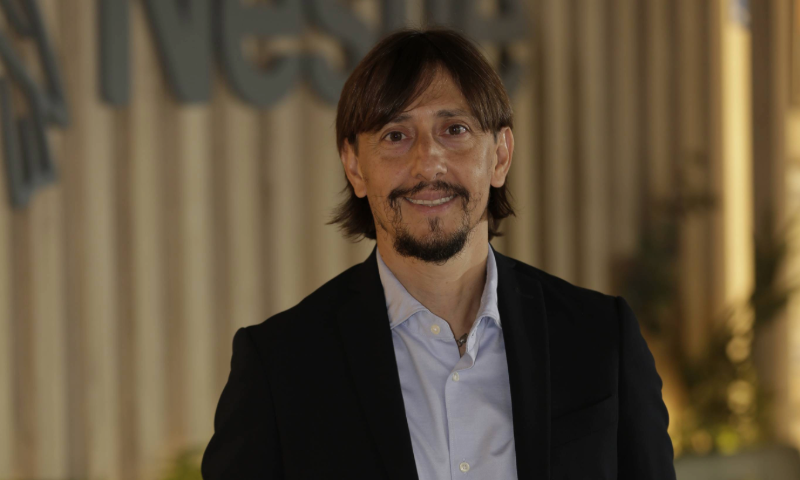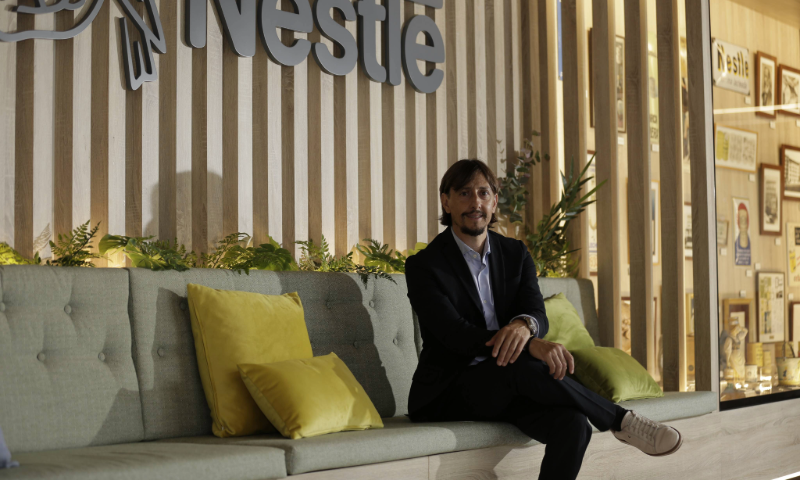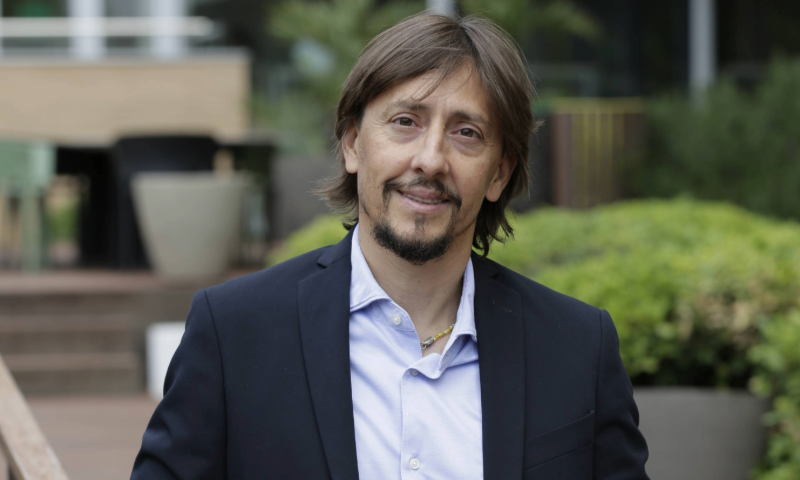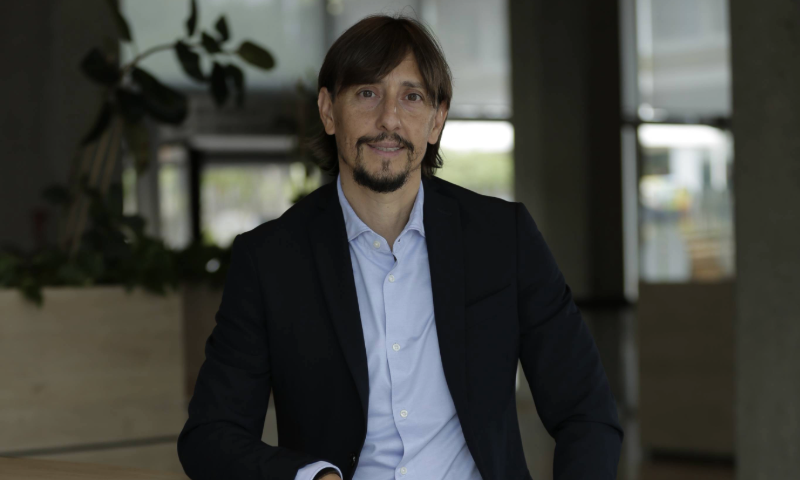Luca Dell’Orletta leads Information Technology Innovation & Enterprise Architecture for the Nesté Group. In this position he is on a mission to unlock tech-powered innovation enabling new business models and continuously future ready digital products in the world’s largest food and beverage company, with 2,000+ brands, 280000 employees, and present in 186 countries. Luca leads the areas of new emerging technologies such as Generative AI, Spatial Computing, Web3, Quantum computing, and the strategic definition of the Technology Architecture of one of the biggest tech landscapes in the World. Awarded FutureCIO 2023 and TopAILeader 2024.
Recently, in an exclusive interview with CIO Magazine, Luca shared his professional trajectory, insights on the three major AI trends to keep an eye on, significant career milestones, the secret sauce behind his success, future plans, words of wisdom, and much more. The following excerpts are taken from the interview.
Hi Luca. Could you share your journey to becoming an expert in your current position?
I am a Telecommunication Engineer who began my career as a software developer and quickly transitioned to leading a team of developers. From there, I held various positions, including Business Analyst, Project Manager, Program Manager, and Business Applications Manager. The first half of my career focused on bridging the gap between Business and Technology, leading technical programs in what we referred to at the time as ‘traditional’ technologies, such as ERP, Business Intelligence, Customer Engagement, and Factory software. I gained significant knowledge about processes ranging from Sales to Finance, Supply Chain, and more. As digital technologies and the startup ecosystem began to emerge, I became eager to be part of this exciting evolution. I had the opportunity to join a top-tier digital agency, where I led numerous projects across various industries. This experience was like a “gym” for me in the digital world. Eventually, the outcomes of these projects evolved into products and new services, marking the beginning of the second phase of my career, this time in ‘Product.’ I specialized in Digital Product Management, launched two startups (working overnight), designed and launched a Master’s program in Digital Product Management, and built products and platforms used by millions of users. I consider myself a ‘Product Person.’ I joined Nestlé in 2016, and two years ago, I was given the privilege to lead Innovation in Information Technology and, more recently, Enterprise Architecture. These areas have always been close to my heart, and I am incredibly passionate about them. What has likely made me an expert in my role is a combination of three key factors: a deep understanding of end-to-end business processes, the ability to engage in detailed technical discussions, and a product-building mindset.
What do you love the most about your current role?
I consider roles to be missions, and I am currently on a mission to unlock tech-powered innovation while strategically guiding a future-ready Information Technology landscape. This enables business growth and supports Nestlé’s Digital Transformation. What I love the most is the large-scale impact I can bring to the world’s largest food, beverage, and nutrition company. The impact of our technology innovation and architectural decisions resonates with consumers, customers, and employees. I also deeply enjoy the connections (and the learnings) I make across the globe every single day.

What are the three major trends do you foresee in your area in the next 12 months?
From a technology innovation perspective, the latest advancements in Artificial Intelligence will revolutionize the way we work and interact with consumers and customers. In the short term, we will see AI—and the power of the latest Large Language Models—integrated into most existing processes, digital products, and platforms, though still in a fragmented and not fully end-to-end unified way. However, the biggest impact will occur when processes and user journeys are designed with an “AI-first” and “by-design” approach. That will be truly transformational.
We will also witness the gradual rise of Quantum Computing, representing a paradigm shift beyond classical computing, capable of solving problems once thought to be permanently out of reach.
From an architecture perspective, it will be all about laying the “railways” that allow companies to move with speed and agility. It will focus on intelligently connecting— and in real-time—the organization from front to back and end to end, from business processes and operating models to services, data, and technology. Organizations that can achieve this at scale will operate on a foundational platform allowing them to continuously build competitive advantage and deliver increased value to customers and employees.
What has been your most career-defining moment that you are proud of?
I’ve had highlights and incredibly fulfilling moments throughout my journey, such as pitching to Richard Branson early in my career. My startup experiences have been immensely enriching. Then, there was leading the development of digital platforms for the 2014 FIFA World Cup in Brazil, and for Art Basel (the world’s largest and most prestigious fair for dealers in modern and contemporary art). I also contributed to growing our Nestlé Global Digital Hub in Barcelona from 0 to 800 people.
However, I believe that leading our most recent AI enablement journey in 2023—during the incredible rise of Generative AI—stands out as a potential turning point. The build and launch of our global Gen AI conversational platform, ‘NesGPT’, for employees, along with the platforms enabling various functional use cases, is likely something I’ll look back on in a few years as a career-defining moment in technology and for myself personally.

If you could have a one-hour meeting with someone famous who is alive, who would it be and why?
Oh, there are so many… but I would choose Julio Velasco. He is the head coach of the amazing Italian women’s national volleyball team, which won the gold medal at the 2024 Paris Olympics. As I am deeply passionate about leadership, I am always seeking to capture and absorb any ideas, practices, or concepts that can help me improve as a leader and contribute to building and developing high-performing teams. Over the years, I have found Velasco to be an incredible source of inspiration, which is why I would love the opportunity to engage with him.
You were recently recognized as one of the Top AI Leaders 2024. Our readers would love to know the secret sauce behind your success.
I really don’t view it as a personal success, but rather as recognition for the very intentional and cutting-edge work our teams are doing to accelerate our digital agenda, leveraging the immense potential of AI. I believe the key lies in the strategic and focused approach we’ve taken—responsible, agile enablement, and most importantly, the talent, passion, and expertise of our people and partners.
Is there a particular person you are grateful for who helped get you to where you are?
There isn’t one specific person, but many along the journey. I was fortunate to have managers who contributed to my personal growth. I am still in contact with all of them and often reach out when I need a second opinion. Many of my peers have taught me something about their areas, and that has always helped me gain a broader perspective, which eventually allows me to make better decisions. Finally, I want to recognize Annabel Harper, an executive coach I had the pleasure to work with. She changed my perception of coaching, and I truly admire the work she does and how she does it.

How do you keep your mind healthy and stay resilient? And how do you motivate your team?
Firstly, it’s about loving what you do. But this can also become a trap if you don’t disconnect as needed. I still find myself reading about Product Management, Leadership, and Innovation in bed. Therefore, I make it a point to schedule ‘detox moments’ throughout the day. I always take 30-45 minutes for swimming or a long walk without my phone. I also plan for a full three-week disconnect annually, usually in remote rural destinations. Then, of course, there are my two young kids, who constantly push me out of my comfort zone, and playing with them is the most refreshing moment of the day.
As for my team, it all starts with being surrounded by the right individuals and creating a sense of belonging. I recently read, ‘if you have the right people, you don’t need a lot of them,’ and I find this to be very true. You need to look for people with potential, the right attitude, proactivity, and a strong sense of ownership. Once you have the right team, it’s important to establish a compelling vision—a north star that motivates people to go the extra mile. Finally, design for intrinsic motivation. Not everyone is driven by the same things at the same time. Leaders must understand what motivates an individual at different points in their life: a potential promotion, a salary increase, more visibility, greater flexibility, or more time with family. And always be alert to signs of burnout. It’s crucial that we stay close and foster a caring environment where we look out for one another.
What is your favorite quote?
“Do the best you can until you know better. Then when you know better, do better.” — Maya Angelou.
The reason this is possibly my favorite quote is that it embodies the spirit of how I believe we should act, and how I strive to operate daily. Firstly, it starts with an action: ‘Do.’ It’s a call to advance, make decisions, and be a force for change. Then comes the need to always give our best: ‘Do the best you can.’ This is followed by the need for continuous learning: ‘Until you know better.’ The pursuit of knowledge, paired with a habit of continuous discovery, makes us more informed and more effective. Finally, the quote concludes with a call for continuous improvement: ‘Then when you know better, do better.’ No matter where the bar was set, raise it. Be a better version of yourself, day after day.

Where do you see yourself in the next 5 years?
Five years in these times of rapid change can feel like a very long time. However, possibly I see myself still somewhere at the intersection of Business and Technology, maintaining the product mindset and entrepreneurial attitude that brought me here. I imagine I’ll still be reinventing how we work and think, possibly making a process, a platform, or even my own job obsolete. Others will do otherwise
What advice would you give to anyone starting out on their career in your industry?
Firstly, that there is nothing written in stone. Stay humble, stay curious and learn from anyone, anywhere, anytime you can. Own your career and never let anything hold you back from thinking and dreaming big. Follow your passion, stay resilient, and always be your own biggest believer. Ultimately, it doesn’t really matter where you land—what truly matters is how fulfilling the journey has been.

